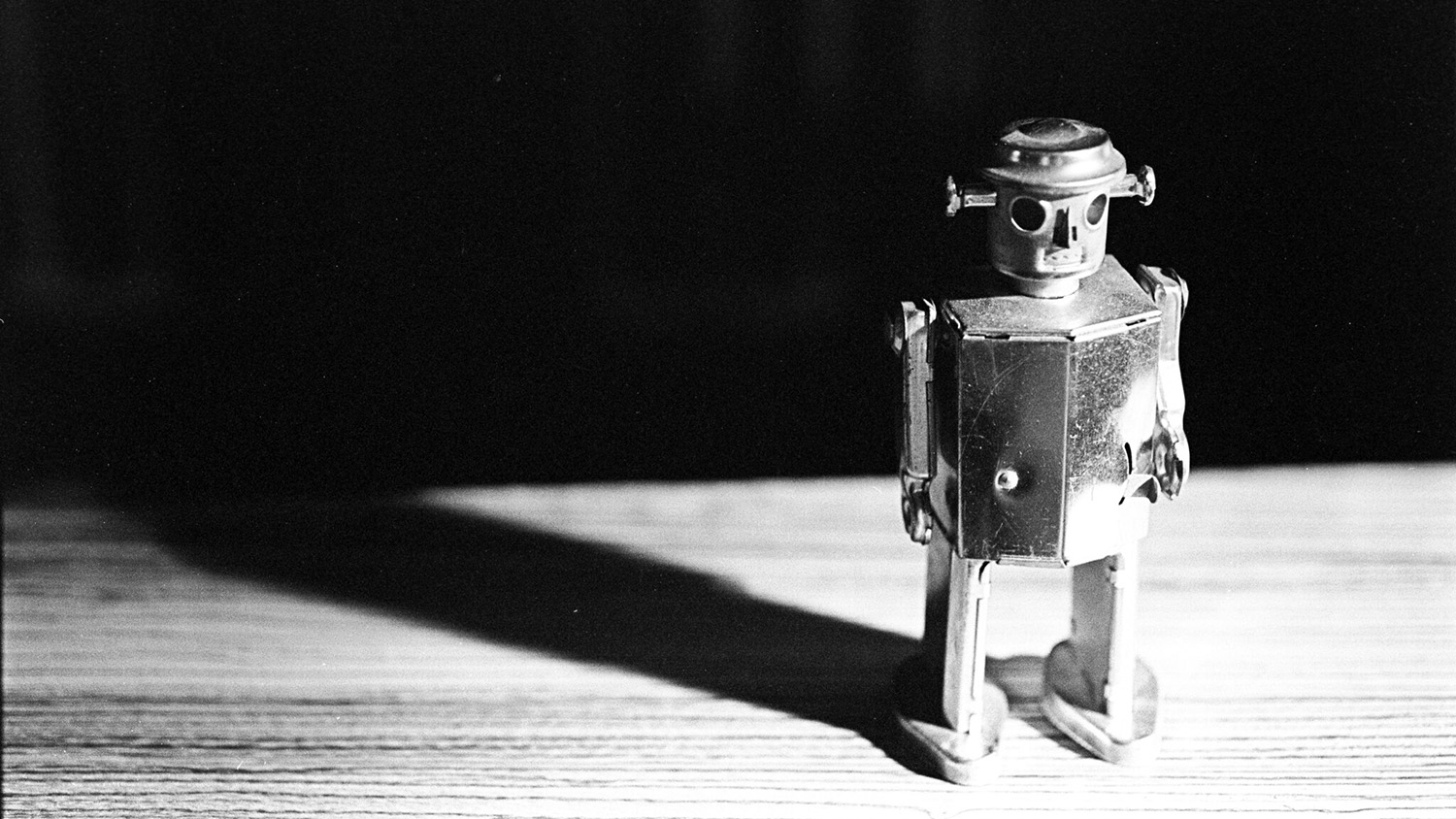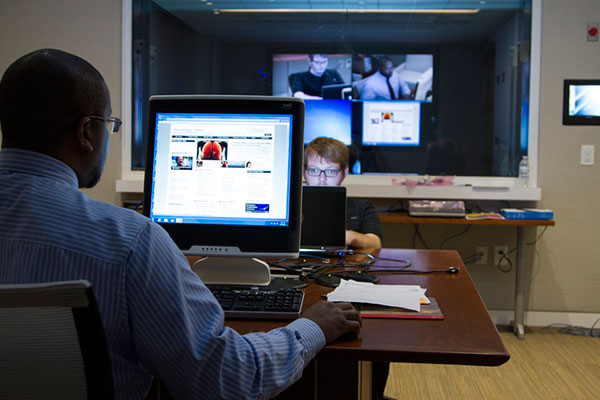A research team led by Professor Michiteru Kitazaki from the Toyohashi University of Technology, Associate Professor Tomohiro Amemiya from the University of Tokyo, and Professor Yasushi Ikei from Tokyo Metropolitan University have developed a virtual walking system. This system records a person walking, then re-plays it to another user through the oscillating optic flow and...
Science & Technology
Giving Robots a Faster Grasp
If you’re at a desk with a pen or pencil handy, try this move: Grab the pen by one end with your thumb and index finger, and push the other end against the desk. Slide your fingers down the pen, then flip it upside down, without letting it drop. Not too hard, right? But for...
Darn You, R2! When Can We Blame Robots?
A recent study from North Carolina State University finds that people are likely to blame robots for workplace accidents, but only if they believe the robots are autonomous. “Robots are an increasingly common feature in the workplace, and it’s important for us to understand how people view robots in that context – including how people...
What Is Pepper Spray?
Whether it’s walking down a dark street at night or fighting off grizzly bears on the trail, pepper spray is an effective tool to fend off an attacker and get safely away. But have you ever thought about what gives this personal-defense-in-a-can its bite – is it just weaponized hot sauce? The American Chemical Society...
USC Scientist Identifies New Species of Giant Flying Reptile
A University of Southern California (USC) scientist and colleagues have identified a new species of giant flying reptile that once soared over what is now North America. The creature is similar to the largest pterosaurs known, yet key characteristics gleaned from a cache of bones unearthed in Canada show it’s actually part of a new...
Prehistoric AC: Study Suggests T. Rex Had an Air Conditioner in Its Head
Tyrannosaurus rex, one of the largest meat-eating dinosaurs on the planet, had an air conditioner in its head, suggest scientists from the University of Missouri, Ohio University and University of Florida, while challenging over a century of previous beliefs. In the past, scientists believed two large holes in the roof of a T. rex‘s skull —...
Ancient Civilizations Were Already Messing Up the Planet
As issues like climate change, global warming, and renewable energy dominate the national conversation, it’s easy to assume these topics are exclusive to the modern world. But a huge collaborative study in Science reveals that early humans across the entire globe were changing and impacting their environments as far back as 10,000 years ago. “Through this crowdsourced...
Study Finds Increase in Women Giving TED Talks but Not Ethnic Minorities
Women gave more than half of TED talks in the first half of 2017, up from less than one-third in 2006, according to a new study published in Political Research Exchange. But the German research team also found that ethnic minorities remain under-represented as TED speakers, giving just one in five talks over the same time...
Extracting Clean Fuel from Sunlight
Securing enough energy to meet human needs is one of the greatest challenges society has ever faced. Previously reliable sources–oil, gas and coal–are degrading air quality, devastating land and ocean and altering the fragile balance of the global climate, through the release of CO2 and other greenhouse gases. Meanwhile, earth’s rapidly industrializing population is projected...
The Brain Processes Words Placed on the Right Side of a Screen More Quickly
When reading words on a screen, the human brain comprehends words placed on the right side of the screen faster. The total amount of presented information on the screen also affects the speed and accuracy of the brain’s ability to process words. These are the findings of HSE University researchers Elena Gorbunova and Maria Falikman...










